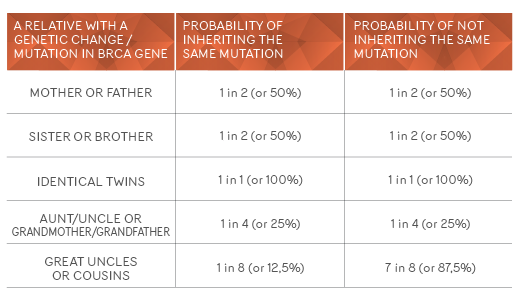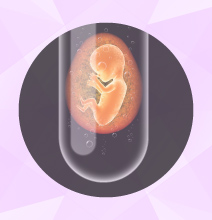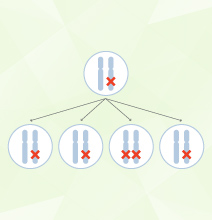Implications of carrying hereditary mutations
An identifying characteristic of hereditary cancer is the fact that it can be present in several members of the same family, many times associated to other cancers of the same cancer syndrome.
A cancer syndrome is when an inherited genetic mutation predisposes the individual to develop different types of cancer. An example is the Lynch syndrome (also called Hereditary Nonpolyposis Colorectal Cancer or HNPCC) in which the inherited mutation increases the risk of colon cancer, but also of other types from endometrial, ovary and stomach to brain cancer.
But there are other consequences of a hereditary cancer mutation:
- The disease tends to appear earlier than normal (before the age of 50).
The patient can develop:
- Two more types of cancer (for example breast and ovary cancer).
- Bilateral cancer (for example in both eyes).
- Recurrent cancer (when the disease comes back).
Whether they develop or not the disease, the carriers of such mutations have 50% chance of passing it to the next generation (see explanation for this in the next page - transmission )
Because of all these specific problems, there is a specialized medical service, the Hereditary (or Familial) Cancer Clinic, that cares for families suspected of carrying hereditary cancer mutations. The service screens and monitors families and, when possible, helps preventing the disease (for example by offering prophylactic surgery if there is high risk of breast cancer).





